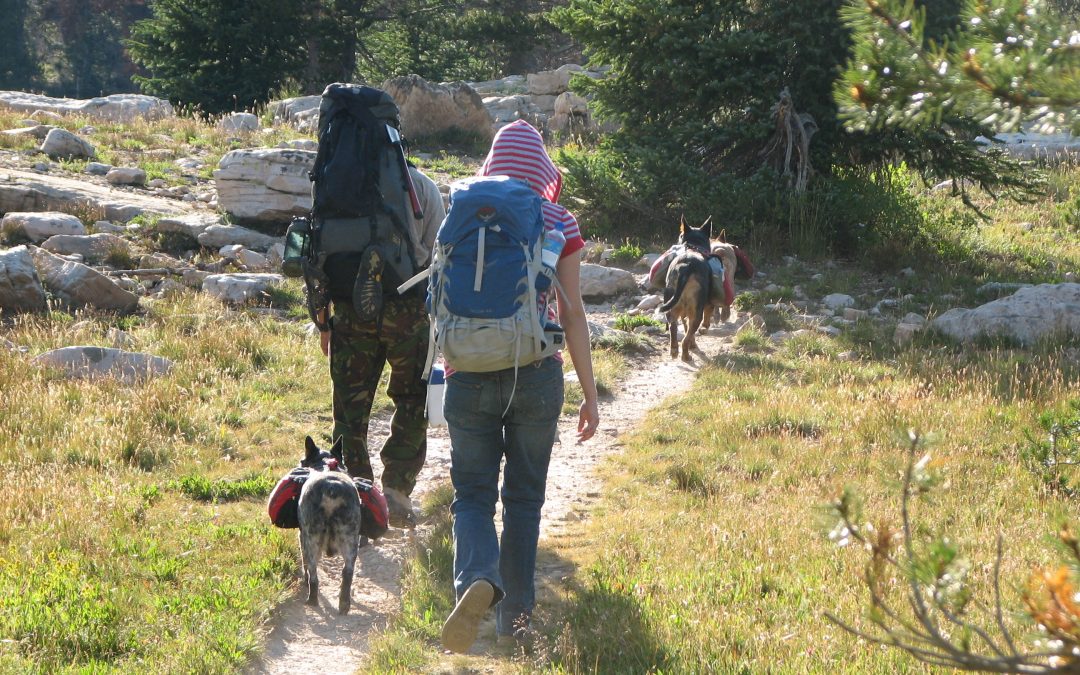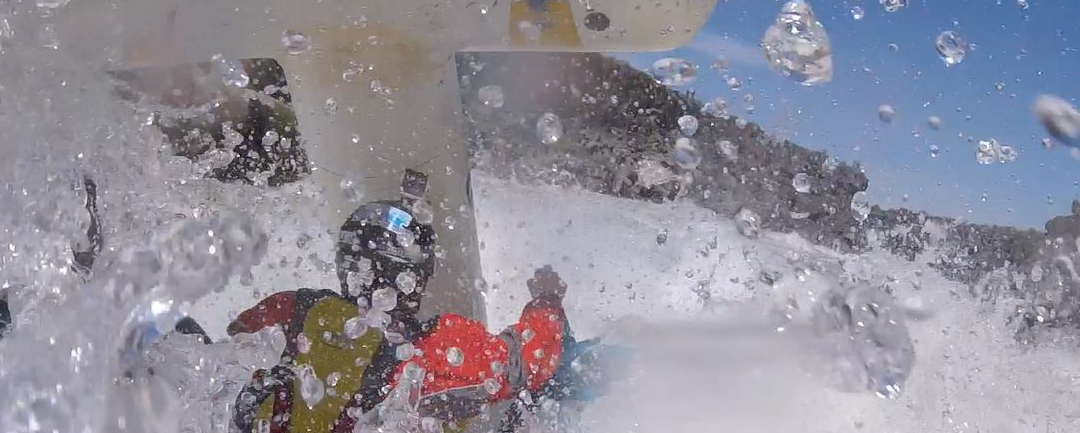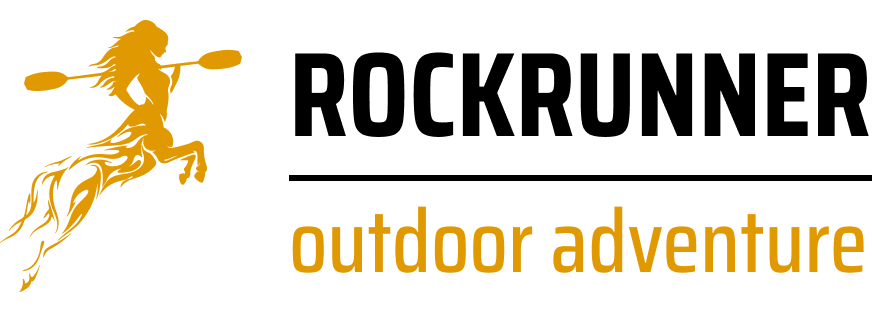How You Fix the Recreation.Gov Permit System
Every year thousands of people pay a minimal fee for a chance to use ‘public lands.’ The idea of ‘public lands’ amuses me. They are public lands, and this means they belong to everyone. This isn’t true. It means everyone has an equal opportunity to use them, not that everyone can use them. The reality is they are government land, and the government uses them to make money that does not necessarily benefit the public. Certain lands are available for everyone such as Zion or Yellowstone. However, there are exclusive areas, that only a few people are lucky enough to see. I am talking about the permit system, which excludes 99% of the public from ever seeing “public lands’.
The problem with the concept of public lands is that it implies rights and responsibility. If you own a car, you have to pay for the gas; you have to pay for the repairs, you have to pay the taxes, you have to pay for the insurance. At the same time, you can use the car whenever you like. To say they are public lands, would imply we all pay for them, which we do through taxes, and we can all use them when we like, which is not true, we only have a chance to use them, which leads to why the permit system needs fixing.

The permit system is inherently flawed. Currently, someone pays x amount of dollars to have their name put in for a chance at a permit. Then at a certain date, a cyber magician pulls a cyber rabbit out of a cyber-hat. The cyber rabbit is the name of whoever is lucky enough to get a permit. What this system does is automatically exclude most of the people from ever seeing or experiencing ‘public lands.’ They preserve the idea that they are public, by saying everyone has an equal chance to see them. The problem is this concept automatically screws the people who pay the majority of the taxes to make sure the public lands provide equal opportunity.
One of the best examples of the permit system thriving on the back of locals is the application for river permits. In most of the areas, the local roads, are funding through the city, county or state. It’s their taxes that perform maintenance and even construction of many of these roads. A lot of the access roads are dirt roads, which only exist, to get people to many of the recreation areas. The locals don’t drive these roads, the only people who do are the people who have permits and will be recreating. However, the maintenance of these roads is up to the county, which funds the maintenance out of taxes. So the question becomes if their taxes make access to these areas possible, why can’t they use them? The permit system is flawed when it is based on the premise of ‘equal chance’ when it should be based on ‘who deserves to.’
I am not for getting rid of the permit system. When it comes to activities such as canyoneering, I am one of the few people who thinks it needs more regulation. I think with all the potential problems the outdoor recreation industry can bring, and the potential manpower it has, the permit system is one way to bring balance to the national parks.
 RELATED ARTICLES:
RELATED ARTICLES:
Many people are fixated on just a few national parks. They travel to the big ones, the major ones. This creates a big demand, traffic, confusion and decreases the beauty and experience for all involved. It’s one of the reasons that some people object to creating more national monuments or parks. There are other parks and monuments of profound beauty, and history just waiting to be explored and discovered. Here are 5 Cool National Parks You Probably Don’t Know About!
Who is Responsible Enough To Deserve a Recreation Permit
When it comes to the outdoors and recreation, there are three types of people. The druids who respect and care for the outdoors, the traveler who enjoys and respects the beauty and the Vikings who are all about the rape, pillage, and plunder.
The druids are the people who will drive 50 miles to pick up one water bottle that was laying on the side of the road. They write love poems to their Prius and dress like Pan for the summer solstice. They are the type of people who will give up their free weekends to pick up litter at a national park or help make improvements on a trail. We crack jokes about them; we laugh at them, call them crazy and point out how if they ran the world we would still be searching for the wheel or trying to discover fire. The reality is they do care for the environment, even if we think it is extreme.

The Traveler is the person who wants to see the beauty that nature possesses. They appreciate the beauty, and they will often go out of their way to see it. They respect nature and will often pick up litter if it is in the path. Unlike the druid, they can find beauty in the oil well slaving away against the backdrop of the sunset. They will come from far reaches of the globe to see something of unique beauty. They may volunteer to help pick up litter or trail improvement, and they may do that at home. However, they don’t have the opportunity to volunteer because they live someplace like New York or Los Angeles where outdoor recreation is defined by how far you have to walk to your mailbox. They may leave some prints, but they only take photos.
The Vikings are the visitors who want to leave their mark on the world, even in the national parks. They leave a lot more than footprints and take everything that isn’t firmly attached to something, or it’s too big and heavy to carry. Nature to them is a virgin waiting to be spoiled. They spray paint their name on the rocks; they push over unique rock formations and leave mother nature completely violated. It’s what they do. You pick up their toilet paper after they leave, and weep when you see them coming. Its quite common and happens often. In Utah, a scoutmaster pushes over a rock formation in Goblin Valley. In Yellowstone Canadians walk all over areas they aren’t supposed to, and a young lady from New York leaves art in several national parks. Most of the rape, pillage, and plunder happen in areas that are frequently traveled. What are these people going to be like if they ever got one of the rare permits, in an area which usually isn’t patrolled or frequented?
 RELATED ARTICLES;
RELATED ARTICLES;
There are only a few adventures that require a permit through the Recreation.gov permit system. Take a look at the Outdoor Adventure Center and choose from one of the main types of adventures that the Rockrunner.net Outdoor Adventure Journal writes about. Follow us from the deserts of southern Utah to the rivers of West Virginia. See how far we have come from our very first backpacking experience backpacking to Ruth Lake.
Fix The Permit System, Educate and Maintain With One Policy
The Park Service is confronted with several problems. First, a permit system which makes trips on ‘public land’ virtually impossible for most people. Second, too many Vikings with access to some of our most priceless areas, and finally, extensive maintenance costs for the park system. An overhaul of the permit system is one way to correct all of these problems.
Currently, the US Park Service employs several rangers both backcountry and law enforcement. They also try to utilize volunteers as much as possible. Upkeep on trails, litter clean up, and maintenance can be additional costs that the Park Service needs to pay every year. The amount of money that is put out for these could be used in a lot of other ways.
I think we can all agree that the Vikings should have less access to the pristine areas of nature. I also think we can agree that 100 druids somewhere are going to leave less of an impact than 1 Viking. For the permits that matter, a different system needs to be put in place.
There should be a point based system. People who volunteer at the national parks should be awarded points. When these people apply for permits, preference should be given based on how many points people have. If the top permit takes 32 points to outbid everyone else, then 32 points are subtracted from the individual’s account, and they get a permit. People can earn points by volunteering at their state park, their national monument, or any place regulated by a state or government agency. This is almost a flawless system, the Vikings probably aren’t going to spend time volunteering, and if they do, they may learn more respect for certain areas. Both the Traveler and the Druid have the opportunity to earn points because volunteering network could be based all across the country. The only losers are international visitors and Vikings. The international visitors don’t lose, because it is more likely that they would hire a local guide service. The Vikings have the opportunity to hire a guide service as well, but this is a win because the guide service monitors their clients.
People who earn points aren’t going to be as likely to bid on the same thing after they win the first time. You can keep the lottery and lottery fees in place, but it’s easy to add extra incentive to decrease the chance of vandalism and increase volunteerism in national parks. If a local wants to participate in a certain activity, it is easy for them actually to earn points. This system wouldn’t change the current system, but it adds a volunteerism aspect to it. If you have a permit and 600 people apply for it, if half of them spend 1-hour volunteering, that is 300 extra man hours the national park service doesn’t have to pay for.
Conclusion
If they are public lands, then each member of the public has a responsibility to care for them. In return for their responsibility, they can reap the rewards and the right to enjoy them. We can solve the shortage of manpower and lack of maintenance in the national parks by putting the theory of rights and responsibilities to work with the permit system.
There is no reason why the National Park Service shouldn’t consider implementing a system such as this. The benefits are numerous, decrease manpower costs, increase nature awareness, cleaner parks, fewer Vikings, people who want and appreciate the permits will get them.
Other Adventure Journal Articles

First Backpacking Trip: Ruth Lake
I can’t tell you what to expect on your first backpacking trip. I can tell you what to expect if you are camping with or near scouts. This is what happened the first time I went backpacking with my scout troop. I started my outdoor adventure at a young age. I had a...

What is Canyoneering?
Why would someone need to write an article explaining what canyoneering is? We don't need to explain what hiking is or what is running or what is camping. Do we need to answer the question of what is canyoneering? Yes! Yes, we do! The reason we have to answer this...
No Results Found
The page you requested could not be found. Try refining your search, or use the navigation above to locate the post.

The Milner Mile: A Hidden Gem Born From Collaboration
It’s a rare opportunity when the energy company, farmers, and the outdoor recreation community work together. When you watch the news, you won’t even know that cooperation exists. Most rafters are used to ranchers and farmers putting up barbed wire over rivers or...



